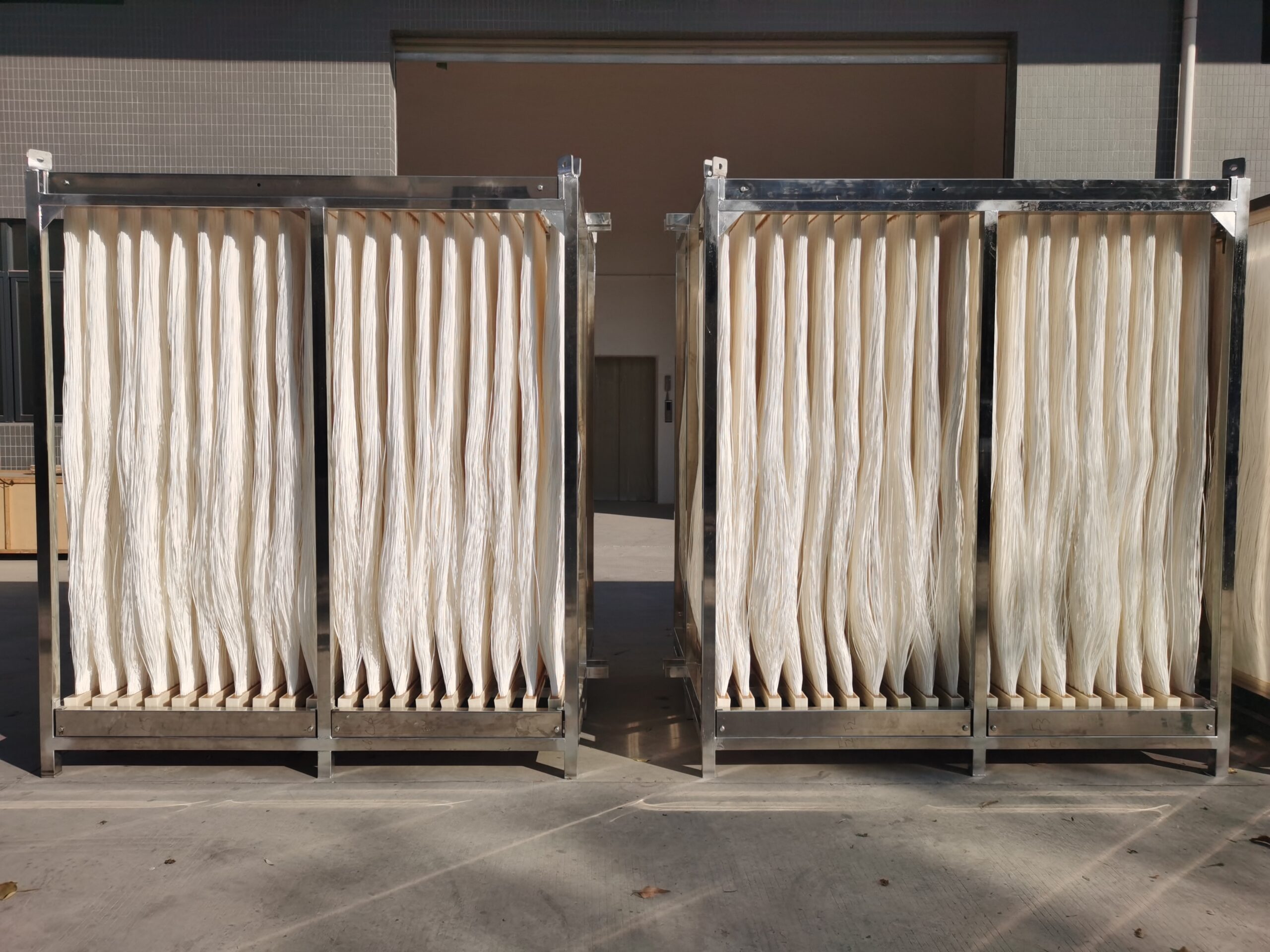The Benefits of Membrane Bioreactors in Sustainable Wastewater Management
Membrane layer bioreactors (MBRs) represent a critical advancement in lasting wastewater monitoring, successfully merging organic treatment with sophisticated membrane layer filtering technology. As the need for sustainable services increases, checking out the complex benefits of MBRs might expose unexpected effects for the future of wastewater treatment systems.
Overview of Membrane Layer Bioreactors
Membrane layer bioreactors (MBRs) stand for a considerable innovation in wastewater treatment modern technology, integrating biological deterioration with membrane filtering to boost the effectiveness of the treatment process. This cutting-edge system integrates the advantages of conventional turned on sludge processes with membrane layer technology, enabling boosted solid-liquid separation. MBRs make use of semi-permeable membranes to different cured water from biomass, resulting in high-grade effluent that can be reused or safely released right into the setting.
The functional layout of MBRs generally entails a bioreactor where bacteria break down raw material, adhered to by a membrane system that filterings system the mixed liquor. This setup not just decreases the footprint of the therapy center however likewise permits for greater biomass focus and decreased hydraulic retention times. MBRs are qualified of dealing with a larger variety of impurities, consisting of nutrients and virus, making them suitable for different applications, from local wastewater therapy to commercial effluent handling.
The assimilation of MBRs into wastewater management systems is indicative of an expanding fad towards efficient and sustainable practices in environmental engineering. Their ability to produce top quality effluent while lessening area needs placements MBR innovation as a principal in contemporary wastewater treatment services.
Enhanced Effluent Quality

The membrane layer filtering procedure serves as a physical barrier, making it possible for the retention of bacteria and particulate issue, which adds to a clearer and cleaner effluent (Membrane Bioreactor). Furthermore, MBRs run at higher biomass concentrations than conventional turned on sludge systems, promoting extra effective biodegradation of pollutants. This causes a reduction in biochemical oxygen need (BOD) and complete suspended solids (TSS) degrees in the final effluent
In addition, MBRs demonstrate superb efficiency in dealing with difficult wastewater make-ups, such as industrial effluents and wastewater with high nutrient lots. Therefore, the effluent produced is commonly of higher high quality, allowing for more flexible disposal choices and lowered environmental effect. Eventually, the boosted effluent top quality accomplished through MBR innovation underscores its essential role in progressing lasting wastewater management methods.
Water Reuse Opportunities
The top quality effluent generated by membrane layer bioreactors (MBRs) opens up considerable chances for water reuse in various applications. MBRs properly get rid of impurities, including pathogens, suspended solids, and check organic issue, leading to cured water that meets or surpasses regulative criteria for reuse. This top quality enables site here for the execution of water reusing initiatives across diverse industries.
One noticeable application is in farming, where treated wastewater can be utilized for irrigation, promoting lasting farming techniques while preserving fresh water sources. In addition, MBR-treated effluent can be used for industrial processes such as cooling, cleaning, and as a procedure water source, considerably minimizing the need for drinkable water in these operations.
In metropolitan settings, MBRs assist in the usage of recovered water for landscape irrigation, toilet flushing, and other non-potable uses, contributing to the overall resilience of water systems. Furthermore, the combination of MBR innovation in decentralized systems aids in taking care of local water demands, especially in water-scarce regions.
Lowered Ecological Impact
Just how can the adoption of membrane layer bioreactors (MBRs) add to a reduced ecological influence in wastewater administration? MBRs dramatically improve the treatment effectiveness of wastewater while minimizing environmental disruptions. Membrane Bioreactor.
In addition, MBRs run at lower hydraulic retention times compared to standard systems, resulting in smaller therapy plant footprints. This small layout decreases land usage, therefore preserving natural environments and biodiversity. The procedure also creates less sludge than standard approaches, reducing disposal difficulties and lowering greenhouse gas discharges connected with sludge management.
Additionally, MBRs assist in the recuperation of valuable resources, such as water and nutrients, adding to a round economy. By enabling water reuse for irrigation or commercial procedures, MBRs aid reduce freshwater shortage, therefore advertising sustainable water use practices. Ultimately, the adoption of MBR technology stands for a substantial stride in the direction of minimizing the environmental impact of wastewater management systems.
Economic Advantages of MBRs

In addition, MBRs promote the manufacturing of high-grade effluent, which can be recycled for numerous applications, such as farming watering and commercial processes - Membrane Bioreactor. This reuse capability can significantly decrease water procurement costs, giving an economic motivation for markets dealing with rigid water guidelines
The compact design of MBR systems additionally leads to minimized land demands, which is especially valuable in city locations where property is costly. By reducing space, districts and markets can conserve on land procurement and maintenance expenditures.
Additionally, MBRs typically require much less regular maintenance and have a longer life-span than standard systems, further adding to cost savings. In recap, the economic benefits of MBRs-- ranging from decreased functional prices to land cost savings and effluent reuse-- make them an engaging option for lasting wastewater administration, supplying both instant and long-lasting financial benefits.
Conclusion
Additionally, MBRs contribute to reduced environmental effects with small styles and lower sludge generation. Economic advantages additionally improve their feasibility, making MBRs an encouraging option for attending to the difficulties of wastewater treatment and advertising lasting source administration.
Membrane bioreactors (MBRs) represent a pivotal development in sustainable wastewater management, properly combining biological treatment with sophisticated membrane filtration modern technology.Membrane layer bioreactors (MBRs) represent a significant advancement in wastewater therapy modern technology, incorporating biological degradation with membrane layer filtering to improve the effectiveness of the treatment procedure.Accomplishing review enhanced effluent top quality is one of the most considerable benefits of using membrane layer bioreactors (MBRs) in wastewater therapy.Additionally, MBRs show outstanding performance in treating tough wastewater structures, such as commercial effluents and wastewater with high nutrient tons.Integrating membrane layer bioreactors (MBRs) into wastewater management not just decreases ecological effect yet additionally provides significant financial advantages.